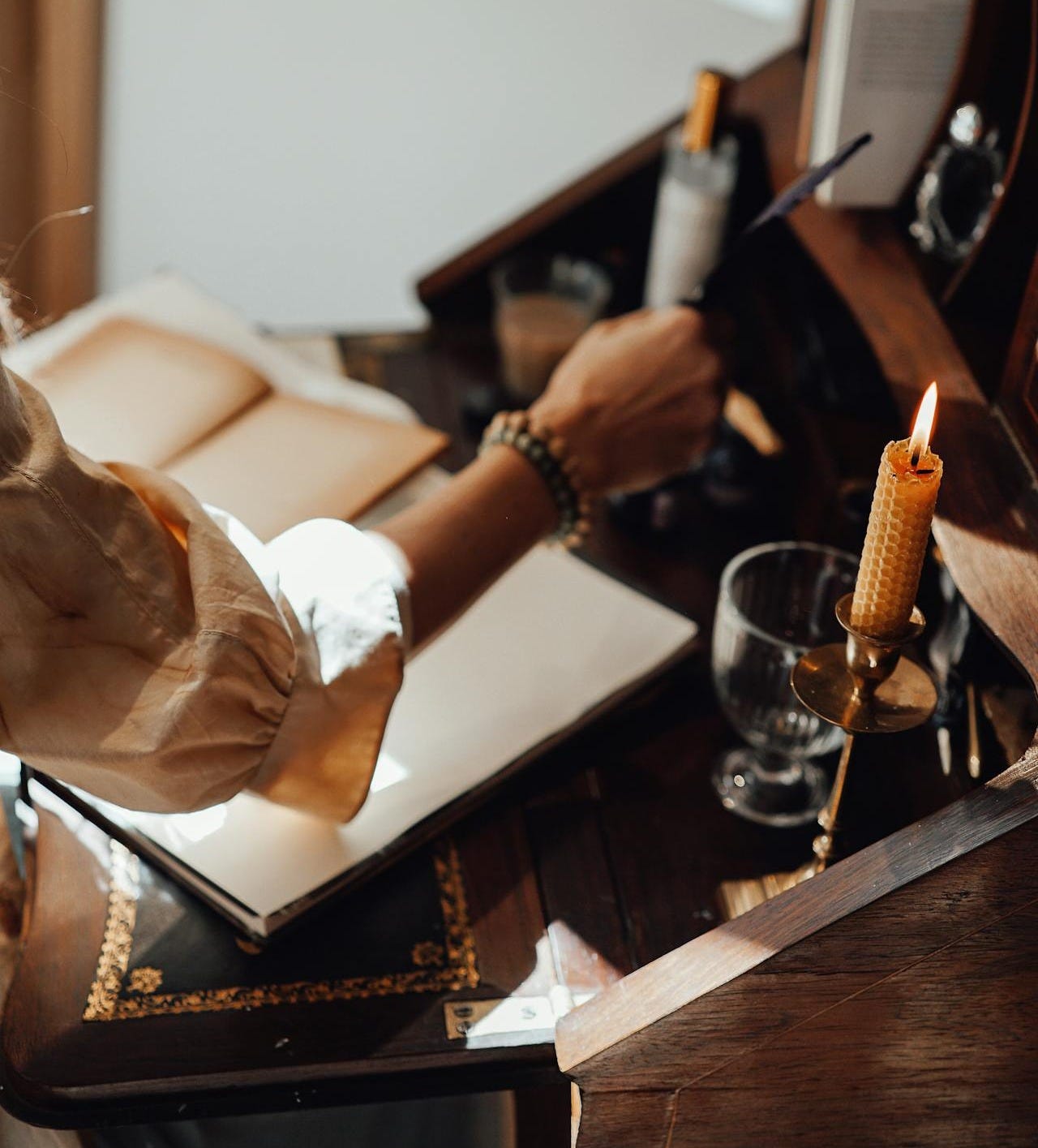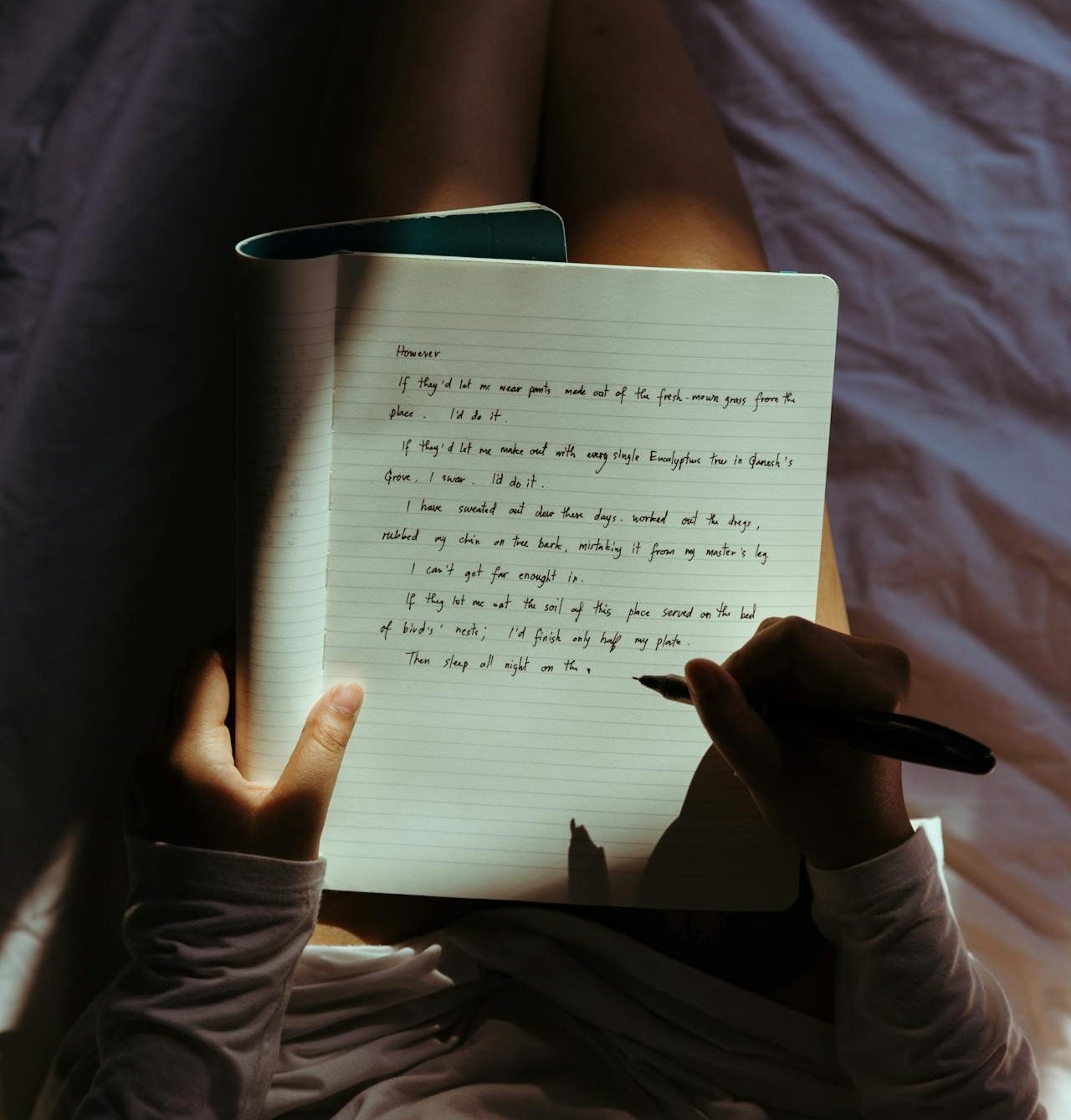Curious evolutions halfway through my first draft
The joys of writing a debut novel as a planster 🌱
Writing a novel has been one of the hardest things I’ve set out to do. I have no professional training as a writer nor do I have friends in the industry. I work full-time as a product designer and have a family to devote time to. But beyond from these universal reasons, writing a debut novel is difficult because the journey stretches over years and the destination—being a published author, is never guaranteed.
So why do I still write? Because I love stories. Because I have fun with words. And because I crave the satisfaction of having made something original from start to finish. I write in the mornings before work, on the commute back home, and at night, if my brain cells allow it. And I’m more than halfway through— 42,300 words as of this morning.
An average novel in my genre (Magical Realism) is around 60,000 - 100,000 words. This is the farthest I’ve come and I’m beyond thrilled. Halfway through my first draft, a couple of interesting opportunities materialised.
Here’s what changed:
Meandering story arcs
I’m a planster at best— a type of writer who plans some elements of plot events, character arcs, or other details that drive their story but for most part, writes by the seat of their pants. (The two extremes are pantsers, who write with no plan, and plotters, who meticulously outline everything.)
I let the story go rogue and my characters decide what happens next. When I first started this book, I received some advice along the lines of— ‘characters have a mind of their own.’ I never really understood the depth of it until my characters ran wild and changed the arc of the story.
My protagonist / female main character (FMC) developed some vices I hadn’t intended leading to more authentic, layered scenes.
My antagonist turned out to be more likeable than I planned. Not a typical villain but strives to oppose the protagonist— a refreshing contrast.
And as a result, the story has meandered into being more character-driven than plot-driven.
These may change again in the next drafts but writing a first draft is simply about telling yourself the story. Making it exist. And I’m pleased with where its headed.
Third person to First Person
I started this novel in third person, writing from my main character’s point of view. Classic and formal. It works great for stories where you’d like to introduce an omniscient voice or narrator who describes events or things beyond the main character’s perspective. I defaulted to third person because most stories I’ve read since my childhood were written this way.
But halfway through, as my story evolved, I realised that I wasn’t capturing the emotions, inner dialogues, and struggles of my FMC as evocatively as I wanted. Her stream of consciousness is crucial to the story and so I rewrote a couple of scenes in first person point of view— it was an awakening. My story feels more personal now and my FMC’s voice shines through to the reader (I hope).
Past tense to present tense
As soon as I made the shift to first person, it prompted another question in my mind. Is past tense the right choice for my story? Does it augment my style or take away from it?
I experimented by rewriting more scenes in present tense and shared them with another writer friend. Her feedback mirrored mine— present tense granted a sense of urgency to my story. Multiple plot events follow my FMC through a number of magical challenges and present tense energised the scenes, as if the reader was following her as she faced these trials.
An example to illustrate the differences:
Third person, past tense
Siya observed him from afar, wondering what his next move might be. Despite the years of friendships, she could never tell with Ollie. The man was an enigma.
First person, present tense
I observe him from afar. What is he going to do next? I can never tell with Ollie; my friend remains an enigma, even after all these years.
First person - present tense is becoming a more modern way of writing, as seen in contemporary fiction. As an aspiring novelist penning my first draft, it’s a joy to discover what works for my story through the act of writing it. There’s no other way or shortcut to develop your style other than putting pen to paper and letting the words flow.
Are you writing a novel? What does your first draft look like?






The act of writing is a great adventure itself. When the work comes to publishing time, another adventure starts.